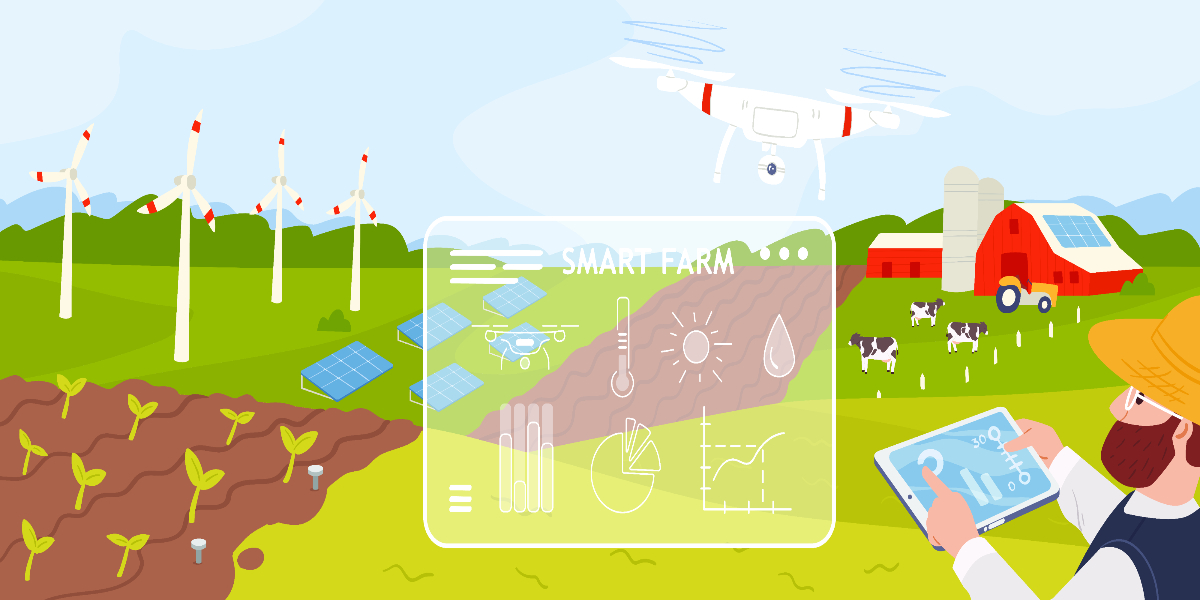Farmers of Southern Punjab are facing challenges in effectively applying Artificial Intelligence (AI) to increase crop cultivation, which has resulted in a decline in the overall crop yield and has added to the rising commodity prices in the country.
Agriculture is a major industry in Pakistan which contributes around 20 per cent to the overall Gross Domestic Prodcut (GDP) of the country and employs almost 50 per cent of its population, directly and indirectly. Meanwhile, AI is widely seen as having the potential to help confront one of humanity’s biggest upcoming challenges: the feeding of the extra two billion people by 2050. This is because AI will help increase yields, when only 4 per cent of additional land will be available for cultivation, according to a report published by Pakistan and Gulf Economist. The reason for this is because AI provides tools to assess operations, decrease crop waste, improve food security and minimise need for pesticides.
According to the research conducted by the Sustainable Development Policy Institute (SDPI), presently there are three major applications of AI in Pakistan. The first of these is the use of agricultural robots which have the capacity to independently handle basic harvesting tasks at a faster pace and greater volume as compared to humans. Secondly, AI can be used to monitor the growth and integrity of crops, protecting them from pests and resulting in higher yields. Lastly, predictive analytics can used for precision farming by tracking things such as rainfall, wind speeds and market shifts.
However, this is not all as easily done as it is said. Farmers currently face many challenges when it comes to implementing AI in their harvesting process. This due to multiple reasons. Chief among these is the lack of accurate crop related data, which is essential for the AI to be able to coordinate all compounding variable. Furthermore, farming is in its essence a rural activity, meaning that education levels in areas where farming occours are generally low. This means that there widespread skepticism and resistance towards using such technology. Another reason, farmers are struggling with the idea of using AI is because it is much more expensive than more traditional methods of farming.
Commenting over the challenges faced by farmers when using AI, Muhammad Nawaz Sharif (MNS) Agricultural University Assistant Professor of Computer Science Dr Ayesha Hakim, an expert on AI, stated that as an early player in this industry Pakistan is struggling with data availability and documenting it accurately which is essential for training the algorithm required for the smooth functioning AI as it relies on mining data. She further revealed that in an attempt to tackle the skepticism, the varsity conducted training workshops for farmers hailing not only from Multan, but also remote districts of the Southern Punjab.
Comparing Pakistan with New Zealand, which survives solely from its agro-based economy, Dr Hakim anticipated that local cultivators would need at least a decade to familiarise themselves with the new invention. “It is not the case anywhere that AI is being used by 100 per cent of the farmers, however widespread access and acceptance needs to occour,” maintained the MNS Agricultural University Vice Chancellor Professor Dr Asif Ali. It’s not for everyone but for the young farmers, particularly those who want to protect their fields, will really take to the technology.
If things proceed as planned, then by collecting data on plant growth, AI can help produce crops that are less prone to disease and better adapted to weather conditions. With this data available to them, farmers would be able to selectively spray only at the targeted area where pests or flies detected. It would not only be cost-effective, by avoiding spray to the whole of the field, but also protect human health from hazards of pesticides, maintained Dr Hakim. Analysing market demand, forecasting prices, and determining the optimal time for sowing and harvesting are key challenges farmers can solve with AI, she said. AI can help judge insight of soil health, provide fertiliser recommendations, monitor the weather and track the readiness to produce crop.
According to Dr Ali, the swift and integrated implementation of AI is also a challenge for software companies. If they wish to succeed in selling AI, they should approach farmers gradually, giving them simpler technology first via agriculture trading platforms. “There is still a lot of work to be done by technology providers to help farmers implement AI the right way,” revealed the VC. Addressing the issues of these technologies being expensive, Dr Ali maintained that the government has the capacity to provide ‘agriculture credit’ to small farmers which would enable them invest in these advanced technologies and techniques.
“Change is inevitable, whether you like it or not. Let’s not give in to the fear of possibilities,” said Dr. Asif Ali.

















